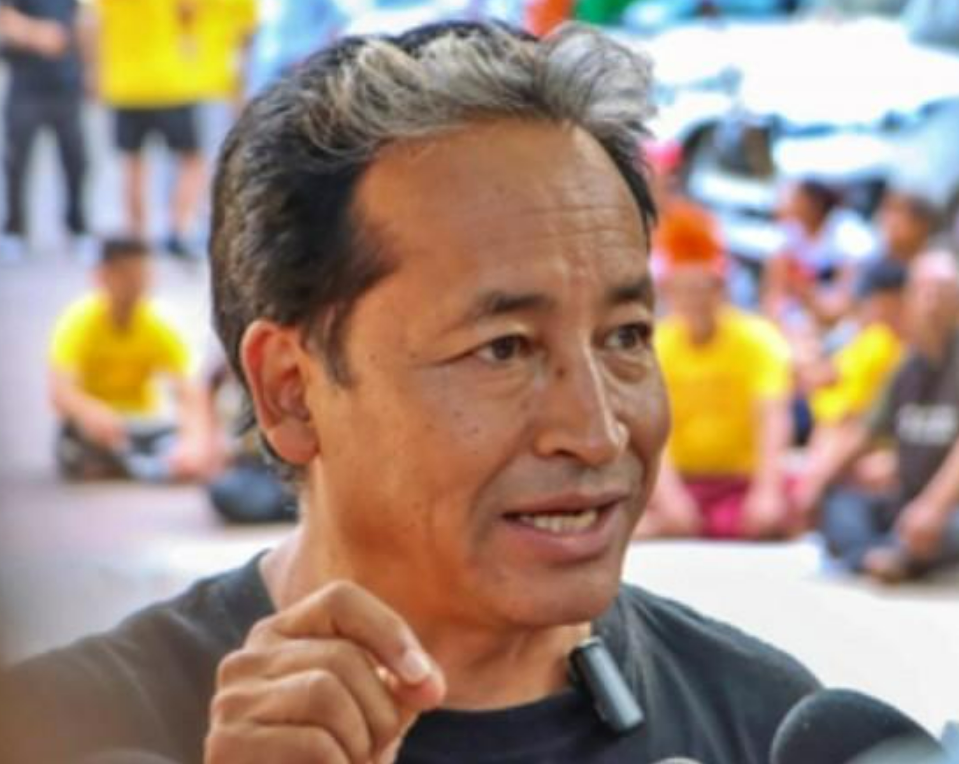
Sonam Wangchuk, the celebrated Ladakhi educationist and environmental activist, has been detained under the National Security Act (NSA) and shifted to Jodhpur Central Jail. The move comes amid intensifying statehood protests in Ladakh, where thousands have been demanding constitutional safeguards and protection of tribal rights.
From Educationist to Political Voice
Known globally for his innovative teaching methods and eco-friendly initiatives like “ice stupas,” Wangchuk has long advocated sustainable development in the fragile Himalayan region. However, in recent years he emerged as a key political voice, urging the central government to grant Ladakh statehood and include it under the Sixth Schedule for protection of its culture and environment.
His transition from educator to activist brought him both admiration and scrutiny. Authorities have closely monitored his recent hunger strikes and rallies, which drew large crowds in Leh and Kargil.
Circumstances of His Arrest
Officials confirmed that Wangchuk was taken into custody under preventive detention provisions of the NSA, citing risks to public order. Within hours, he was flown out of Ladakh and shifted to Jodhpur. The sudden transfer, according to analysts, was aimed at keeping him away from his support base and preventing further mobilization.
The administration maintains that escalating protests risked turning violent. But Wangchuk’s supporters insist his campaigns were peaceful and environmentally focused, accusing authorities of overreach.
Reactions Across the Spectrum
The detention has drawn widespread condemnation. Political parties from the opposition accused the government of authoritarianism. Human rights organizations demanded his immediate release, calling the use of NSA against a peaceful activist “gross misuse of power.”
In Parliament, opposition MPs staged protests, with several demanding accountability from the Home Ministry. Meanwhile, pro-government voices insisted that national security concerns in Ladakh, a sensitive border region, justified the action.
Ground Protests in Ladakh
On the ground, the arrest has further fueled the agitation. In Leh, thousands marched demanding Wangchuk’s release. Monks, students, and local leaders joined hands, describing him as the face of Ladakh’s fight for identity and sustainability.
Shops and businesses observed shutdowns in solidarity, while community organizations called for larger rallies in the coming weeks.
Symbolism of Wangchuk’s Detention
For many Ladakhis, Wangchuk embodies the aspirations of the region. His detention under a stringent law normally reserved for terrorists or grave threats has deepened feelings of alienation. Activists argue that the government has ignored the region’s demands for safeguards and instead chosen to silence its most prominent voice.
Legal and Political Ramifications
Under the NSA, detainees can be held without trial for up to a year. Legal experts say this leaves Wangchuk with limited avenues for immediate relief, although his supporters may approach higher courts.
Politically, the move risks backfiring. Analysts suggest that detaining a globally respected activist could attract international scrutiny, especially given Wangchuk’s reputation as a climate crusader.
The Road Ahead for Ladakh Movement
Whether the crackdown will weaken or energize the movement remains to be seen. For now, Wangchuk’s detention has given statehood protests new momentum, as Ladakhis rally behind his cause. With hashtags trending online and protests swelling on the ground, the government may face mounting pressure in the days to come.
